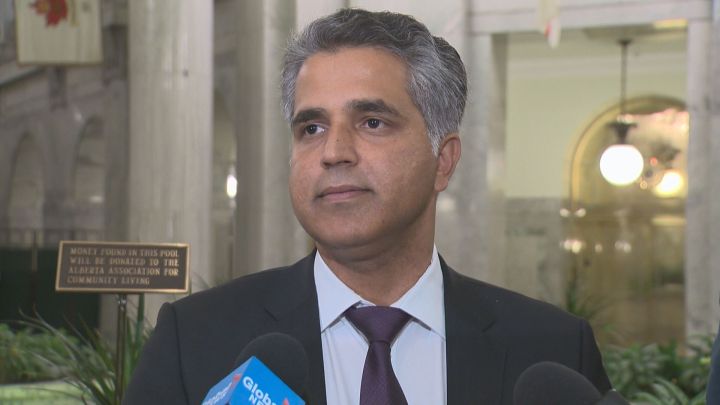The Notley government is taking a new tack in Aboriginal relations, and it’s already showing up in foster care.

The permanancy committee has been scrapped in the Edmonton region. That’s a body that helped decide if foster kids could be adopted. The panel was disbanded after hearing concerns from Aboriginal communities.
“That permanency committee was more on the side of First Nations, how they want to have their input,” says Human Services Minister Irfan Sabir. “They are telling us that they don’t think this is the right way, the most efficient way. So we went with that.”
Some First Nations have been pushing for the change for a couple of years. One of them was Saddle Lake Cree Nation. Denise Steinhauer is the band designate, who works on files for the First Nation’s children living off-reserve. She says one of the big problems is adoptive parents would sign off on a plan to keep Aboriginal kids connected to their culture. But after the adoption, they wouldn’t follow through.
“They promise all they want, but there’s nothing saying that they have to do this or they’re going to do this,” says Steinhauer. “They don’t have (a) policeman after they adopt or they go private (guardianship). It is final. When they adopt, even when they go private (guardianship), you lose sight of these kids. You never see them again.”
Steinhauer feels that permanency committee often had its mind made up before she could suggest alternative Aboriginal placements for off-reserve children. She argues the rest of the panel often failed to consider the ideas of an Aboriginal elder who sat on the committee.

Get breaking National news
Some workers and foster parents in the system are concerned that scrapping permanency committee will add to the delays in finding “forever homes” for kids who won’t be allowed to return to their biological families. But Sabir is confident they can do better at working with First Nations, and still make progress on permanency.
“That policy still stays there,” says Sabir. “(Permanency committee) was just one way of achieving that goal.”
“I do not anticipate any delays,” says Sabir. “We are hoping that it will not delay permanency across the board. And in individual cases, I would encourage foster parents to work through their caseworkers.”
The Office of the Child and Youth Advocate is taking a wait-and-see approach, before deciding if the change is leaving kids in limbo.
“A process for permanency must begin from the very first involvement with the child intervention system, and permanency needs to be a key consideration throughout all involvement with young people and their families,” says Tim Chander, the advocate’s communications manager, in a statement.
“Permanency committees were one strategy intended to support young people to attain permanency. The Office of the Child and Youth Advocate will keep an eye on this issue through our direct involvement with youth.”
Decisions made by the permanency committee before the end of September will remain in effect. But cases with upcoming dates are cancelled, leaving some caseworkers and foster parents anxious about what will happen to the children in their care (full disclosure: the reporter is a foster parent whose children are in a similar situation). But some First Nations, like Saddle Lake, see the change as an opportunity to have a stronger voice in the conversation involving their kids.
“Permanency is a word that doesn’t feel good in our community or in our culture,” says Steinhauer. “It’s so final. In our language, there’s no word for (permanency). It would mean loss or something negative, it’s not positive.”
The Notley government wants to make sure it lines up with the Truth and Reconciliation Commission, and the UN Declaration on the Rights of Indigenous Peoples. According to an email obtained by 630 CHED News, permanency committee “symbolically represents a body that is not in keeping with the recommendations arising from the Truth and Reconciliation Commission.”
The Notley government is doing consultations with First Nations on several issues, across all government ministries, led by Justice Minister and Solicitor General Kathleen Ganley.
Sabir says more changes are on the way in the coming months. Some foster parents have already been told that the “foster to adopt” program is no longer available. It fast-tracked for adoption foster children who were unlikely to return to their families. But a spokesperson for Sabir says “there are no changes to the foster program, and it is still possible for foster parents to adopt.”
Most of all, Steinhauer wants Aboriginal kids to know where they come from.
“We need to be able to meet the kids and meet the foster parents and have a relationship, so I know who these kids are,” says Steinhauer. “A lot of my kids that are under membership of Saddle Lake, I don’t even know them. I’ve never seen them.”












Comments
Want to discuss? Please read our Commenting Policy first.